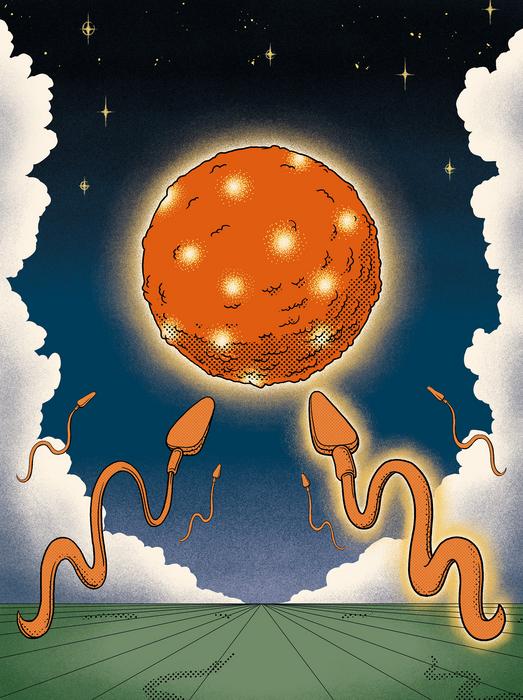Dr. Raffaele Teperino, head of the “Environmental Epigenetics” research group at Helmholtz Munich, along with his research team, has examined the impact of paternal diet on children’s health – specifically, the influence of diet before conception. The researchers focused on special small RNA molecules in sperm, known as mitochondrial tRNA fragments (mt-tsRNAs, see background). These RNAs play a key role in the inheritance of health traits by regulating gene expression.

Credit: Philipp Beck
Dr. Raffaele Teperino, head of the “Environmental Epigenetics” research group at Helmholtz Munich, along with his research team, has examined the impact of paternal diet on children’s health – specifically, the influence of diet before conception. The researchers focused on special small RNA molecules in sperm, known as mitochondrial tRNA fragments (mt-tsRNAs, see background). These RNAs play a key role in the inheritance of health traits by regulating gene expression.
For their study, the researchers used data from the LIFE Child cohort, which includes information from over 3,000 families. The analyses showed that the father’s body weight influences the weight of the children and their susceptibility to metabolic diseases. This influence exists independently from other factors such as the mother’s weight, the parental genetics, or environmental conditions.
The Father’s Diet Influences the Children
To verify the results of their analysis, the research team subsequently conducted experiments with mice. These mice were fed a high-fat diet, meaning food with a higher fat content than a normal diet. This had effects on the reproductive organs of the animals, including the epididymis. The epididymis is the area in the male reproductive system where freshly formed sperm mature. “Our study shows that sperm exposed to a high-fat diet in the mouse epididymis led to offspring with an increased tendency to metabolic diseases,” says Raffaele Teperino.
To deepen the findings, the research team conducted additional studies in the laboratory. They created embryos through in-vitro fertilization (fertilization “in a test tube”). When Teperino’s team used sperm from mice that had been exposed to a high-fat diet, they found mt-tsRNAs from these sperm in early embryos, significantly influencing gene expression. This, in turn, affects the development and health of the offspring.
“Our hypothesis that acquired phenotypes over the course of life, such as diabetes and obesity, are transmitted via epigenetic mechanisms across generations, is reinforced by this study. Here, epigenetics serves as a molecular link between the environment and the genome, even across generational boundaries. This occurs not only through the maternal line but, as our research results indicate, also through the paternal line,” explains Prof. Martin Hrabě de Angelis, co-author of this study and Research Director at Helmholtz Munich.
Preventive Health Care for Men Wishing to Become Fathers
The findings from the researchers at Helmholtz Munich underline the role of paternal health before conception – and offer new approaches to preventive health care: “Our results suggest that preventive health care for men wishing to become fathers should receive more attention and that programs should be developed for this purpose, especially with regard to diet,” says Teperino. “This can reduce the risk of diseases like obesity and diabetes in children.”
Background: The Indirect Influence of Fathers
Mitochondria are often referred to as the powerhouses of the cell. They have their own DNA, independent of the DNA in the cell nucleus. This mitochondrial DNA (mt-DNA) produces proteins in the mitochondria via the intermediate mt-RNA and is typically inherited from mothers to offspring. Previously, it was assumed that fathers had no part in the genetic makeup of their offspring’s mitochondria. However, recent studies like this one now show that sperm carry fragments of mt-RNA (“mt-tsRNA”) into the egg during fertilization. The mt-tsRNAs play a role in epigenetics, regulating gene expression in the early embryo: they can indirectly influence the development and health of the offspring by modifying the activity of certain genes in the mitochondria. Thus, fathers have an important, albeit indirect, influence on the genetic imprinting of mitochondria and thereby on the energy metabolism of their children.
Journal
Nature
Article Title
Epigenetic inheritance of diet-induced and sperm-borne mitochondrial RNAs
Article Publication Date
5-Jun-2024



